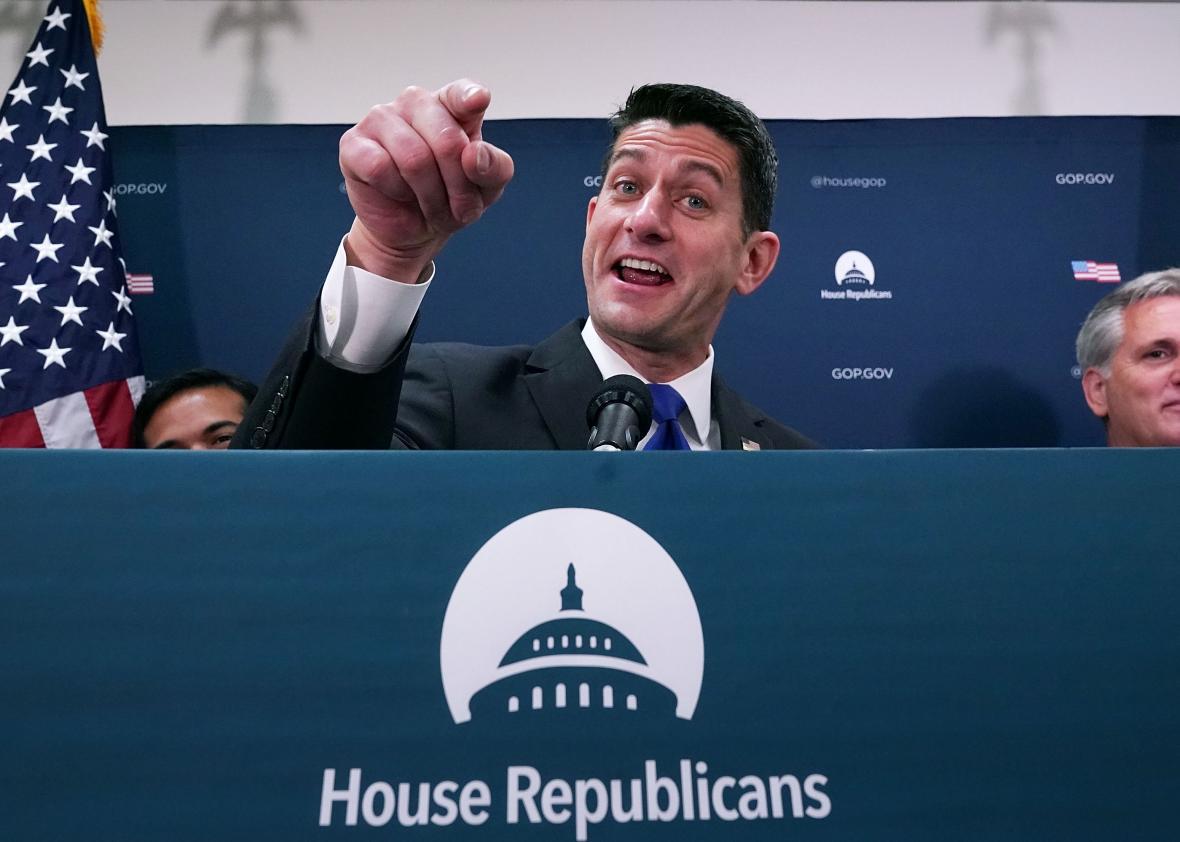House Republicans barely passed their Senate counterparts’ budget blueprint Thursday afternoon in a squeaker, 216 to 212, with just one extra vote on top of the minimum they needed for a majority. The budget, which is really just a vehicle for a broader tax reform package, now allows Congress to write tax legislation that won’t be subject to a 60-vote Senate filibuster.
For Republicans, crafting the budget and then muscling it through both chambers with the bare minimum of votes was the easy part. Now they have to write and reveal a bill that stands to anger every person (human or corporate) who pays a dollar more as a result of those changes.
The main lesson from Friday’s nail-biter is that the New York and New Jersey Republicans will not be rolled. Since congressional leaders and the White House released their framework for reform last month, Republicans in those two states have been leading the revolt against one of the plan’s central revenue-raisers: eliminating the state and local tax deduction, worth about $1.3 trillion over 10 years. Though House leaders and the bill’s authors have been meeting regularly with members representing high-tax districts, they haven’t yet been able to work out a deal. Seven out of nine New York Republicans voted against the budget along with four out of five New Jersey Republicans. Two Pennsylvania Republicans also voted against it.
Joining them were five members of the House Liberty Caucus for whom big, compromised bills are always a tough sell: South Carolina Rep. Mark Sanford, North Carolina Rep. Walter Jones, Kentucky Rep. Thomas Massie, Tennesee Rep. Jimmy Duncan, and Michigan Rep. Justin Amash. Retiring Kansas Rep. Lynn Jenkins was the last of the 20 Republican nays.
The close vote did reveal some good news for Republicans. As with the health care vote in May, it appears that California Republicans are ready to follow House leaders wherever they may lead. California is a high-tax state. All 14 of its members voted for the budget anyway. Sure, why not?
Eliminating the state and local deduction illustrates just how hard it will be to craft a broader tax bill. It was one of the very few difficult decisions released in the framework, and the outcry was nearly enough to kill the process before it began. If tax writers have to accommodate those members’ concerns with something like a cap on the deduction—rather than eliminating it altogether—that could lose them most of that $1.3 trillion in revenue that they were counting on to help pay for massive business tax cuts. The bill’s authors also still need to specify how much they want to increase the child tax credit, which they’re using to offset the elimination of the personal exemption. That, too, will be expensive. In order to get anywhere close to revenue-neutrality on a plan that maintains the business tax cuts they want, Republicans will need to summon the will to aggressively pursue some truly sacred cows. Judging from the few trial balloons out there, that’s not off to a hot start.
Republicans hope to complete tax reform by the end of the year, which is in two months.
